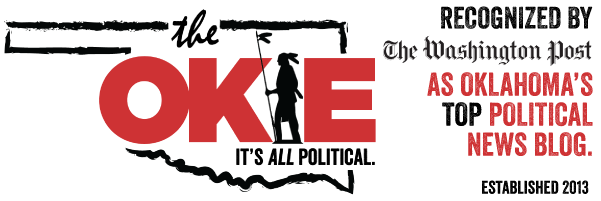John Tidwell: Tax Permanency Is Never The Answer
Tax permanency is never the answer
By JOHN TIDWELL
Oklahoma’s lack of long-term planning to address common education funding and teacher pay isn’t helped by a permanent 22 percent tax increase.
Last month, University of Oklahoma President David Boren unveiled plans to launch an initiative petition process seeking a statewide vote on a 22 percent hike in the state sales tax. The revenue from the tax increase would pay for a long-sought teacher pay raise as well as provide increased funding to our higher education system.
Last week, a group of taxpayers associated with Oklahoma Council of Public Affairs Impact filed a challenge to the petition and ballot language regarding the Boren tax. The challenge, headed up by Dave Bond, a taxpayer and registered voter in the Oklahoma City area, asserts that the robustness of the tax plan violates the Constitution’s single subject rule as it contains provisions for a tax increase to fund both higher education and common education. The Oklahoma Supreme Court will have to rule on the petition and it’s challenge.
Let me be clear, good teachers deserve our praise and our support. They deserve a responsible raise in pay and there is a way to achieve that goal immediately, but a permanent 22 percent tax increase is not the answer. There is no question that administrative costs are on the rise and cutting those budgets would allow dollars go directly to teachers and the classroom.
Moreover, we should have competitive starting teacher salaries to attract talented individuals to become educators. In the past, opponents of education reforms have projected a false choice: You are either blindly supportive of any form of education funding or you are completely against teachers. I just don’t buy that logic. Can’t we support students and parents of Oklahoma, practice fiscal responsibility, and still be supportive of our teachers?
With everything stated above, why are we proposing a tax increase to fund system that is already broken? When you start to peel the onion off the Boren Tax, you see its folly and fault. For example, by statute, a teacher in Oklahoma cannot be paid less one year to the next. This 22 percent sales tax increase would be a permanent increase, it can never to go away. Like the old adage goes, this tax will always be one of life’s certainties in Oklahoma.
Last month, the Tax Foundation reported that the 22 percent tax increase would catapult Tulsa and Oklahoma City in to the top five cities with the highest sales tax. How does that make us more competitive in the region or at the national level?
Sales tax are regressive taxes and pose the greatest harm to low- and middle-income families — those who are best served by a great education, not by tightening their finances only to have their education outcomes remain the same.
Why would we tie the hands of future legislatures to appropriate increases in teacher pay, higher education, and career tech funding, if our economy were to weaken in coming years? This state needs far more responsible spending and budget practices that look toward the future.
A long-term plan for education funding that includes rigorous outcomes and benchmarks is a much more prudent and sensible direction for the state.
A massive earned-media campaign has been at work in the state for many months to demonstrate what the media has defined as a severe lack of qualified teachers, as well as significant cuts to “money in the classroom.”
But the emotional pull of their argument doesn’t give you both sides of the story. In reality, Oklahoma’s budget for public education is at an all time high. For the 2013-2014 school year, state revenues for pre-K to 12th grade public education were nearly $5.5 billion. But how can record revenue and abysmal teacher salaries co-exist in today’s political environment? Well, welcome to Oklahoma politics.
You see, while the budget has soared to record levels, so have administrative costs. In fact, between 1992 and 2013, the number of administrative positions (non-teachers) grew 33 percent. But during that same time, enrollment only increased 14 percent and numbers of new teachers only grew 11 percent. Over a 20-year period, the number of non-teacher, administrative positions in Oklahoma grew 300 times those of teachers. Now, if you were an Oklahoma teacher, wouldn’t you have a hard time accepting that?
If superintendents and the teacher unions had more respect for the taxpayer and curbed administrative growth over that time, there would be nearly $300 million dollars in the budget today which could be used for teacher pay.
Oklahoma has no long-term plan for addressing both common education funding and teacher pay, and a permanent, 22 percent tax increase is no way to improve our state’s position.
John Tidwell is Oklahoma state director for Americans For Prosperity Foundation and a member of the Tulsa World Community Advisory Board.

